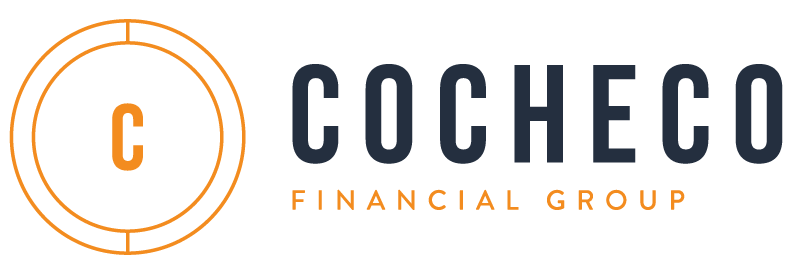Where Will Your Retirement Money Come From?
Submitted by Cocheco Financial Group, LLC on January 15th, 2020For many people, retirement income may come from a variety of sources. Here’s a quick review of the six main sources:
Social Security
Social Security is the government-administered retirement income program. Workers become eligible after paying Social Security taxes for 10 years. Benefits are based on each worker’s 35 highest earning years. If there are fewer than 35 years of earnings, non-earning years are averaged in as zero. In 2019, the average monthly benefit was estimated at $1,461. 1
Personal Savings and Investments
Personal savings and investments outside of retirement plans can provide income during retirement. Retirees tend to go for investments that offer monthly guaranteed income over potential returns. 2
Individual Retirement Accounts
Traditional IRAs have been around since 1974. Contributions you make to a traditional IRA may be fully or partially deductible, depending on your individual circumstances. Under the SECURE Act, in most circumstances, once you reach age 72, you must begin taking required minimum distributions from a Traditional Individual Retirement Account (IRA). Withdrawals from Traditional IRAs are taxed as ordinary income and, if taken before age 59½, may be subject to a 10% federal income tax penalty. You may continue to contribute to a Traditional IRA past age 70½ under the SECURE Act as long as you meet the earned-income requirement.
Roth IRAs were created in 1997. Roth IRA contributions cannot be made by taxpayers with high incomes. To qualify for the tax-free and penalty-free withdrawal of earnings, Roth IRA distributions must meet a five-year holding requirement and occur after age 59½. Tax-free and penalty-free withdrawals also can be taken under certain other circumstances, such as a result of the owner’s death. The original Roth IRA owner is not required to take minimum annual withdrawals.
Defined Contribution Plans
Many workers are eligible to participate in a defined-contribution plan such as a 401(k), 403(b), or 457 plan. Eligible workers can set aside a portion of their pre-tax income into an account, which then accumulates, tax deferred.
Under the SECURE Act, in most circumstances, you must begin taking required minimum distributions from your 401(k) or other defined contribution plan in the year you turn 72. Withdrawals from your 401(k) or other defined contribution plans are taxed as ordinary income, and if taken before age 59½, may be subject to a 10% federal income tax penalty.
Defined Benefit Plans
Defined benefit plans are “traditional” pensions—employer–sponsored plans under which benefits, rather than contributions, are defined. Benefits are normally based on factors such as salary history and duration of employment. The number of traditional pension plans has dropped dramatically during the past 30 years.
Continued Employment:
In a recent survey, 68% of workers stated that they planned to keep working in retirement. In contrast, only 26% of retirees reported that continued employment was a major or minor source of retirement income. 3
1 Social Security Administration, 2019
2 Insured Retirement Institute, April 2018
3 Employee Benefits Research Institute, 2018
The content is developed from sources believed to be providing accurate information. The information in this material is not intended as tax or legal advice. It may not be used for the purpose of avoiding any federal tax penalties. Please consult legal or tax professionals for specific information regarding your individual situation. This material was developed and produced by FMG Suite to provide information on a topic that may be of interest. FMG Suite is not affiliated with the named broker-dealer, state- or SEC-registered investment advisory firm. The opinions expressed and material provided are for general information, and should not be considered a solicitation for the purchase or sale of any security. Copyright 2020 FMG Suite.

